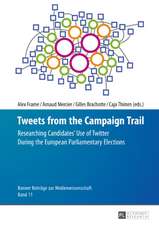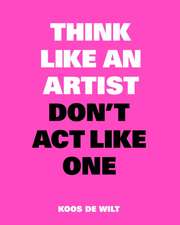Artwash: Big Oil and the Arts
Autor Mel Evansen Limba Engleză Paperback – 19 apr 2015
As major oil companies face continual public backlash, many have found it helpful to engage in “art washing”—donating large sums to cultural institutions to shore up their good name. But what effect does this influx of oil money have on these institutions? Artwash explores the relationship between funding and the production of the arts, with particular focus on the role of big oil companies such as Chevron, ExxonMobil, BP, and Shell.
Reflecting on the role and function of art galleries, Artwash considers how the association with oil money might impede these institutions in their cultural endeavors. Outside the gallery space, Mel Evans examines how corporate sponsorship of the arts can obscure the strategies of corporate executives to maintain brand identity and promote their public image through cultural philanthropy. Ultimately, Evans sounds a note of hope, presenting ways artists themselves have challenged the ethics of contemporary art galleries and examining how cultural institutions might change.
Reflecting on the role and function of art galleries, Artwash considers how the association with oil money might impede these institutions in their cultural endeavors. Outside the gallery space, Mel Evans examines how corporate sponsorship of the arts can obscure the strategies of corporate executives to maintain brand identity and promote their public image through cultural philanthropy. Ultimately, Evans sounds a note of hope, presenting ways artists themselves have challenged the ethics of contemporary art galleries and examining how cultural institutions might change.
Preț: 165.70 lei
Nou
Puncte Express: 249
Preț estimativ în valută:
31.71€ • 33.19$ • 26.24£
31.71€ • 33.19$ • 26.24£
Carte tipărită la comandă
Livrare economică 05-19 aprilie
Preluare comenzi: 021 569.72.76
Specificații
ISBN-13: 9780745335889
ISBN-10: 0745335888
Pagini: 192
Ilustrații: 20 halftones
Dimensiuni: 133 x 216 x 15 mm
Greutate: 0.3 kg
Editura: PLUTO PRESS
Colecția Pluto Press
ISBN-10: 0745335888
Pagini: 192
Ilustrații: 20 halftones
Dimensiuni: 133 x 216 x 15 mm
Greutate: 0.3 kg
Editura: PLUTO PRESS
Colecția Pluto Press
Notă biografică
Mel Evans is an artist and campaigner associated with Liberate Tate and Platform. As well as making unsanctioned performance works at Tate and writing on oil sponsorship of the arts, she creates theatre pieces in the City of London that examine culture, finance and Big Oil.
Cuprins
List of Illustrations and Tables
List of Acronyms
List of Characters
Acknowledgements
1. Introduction
2. Big Oil’s Artwash Epidemic
Tobacco and arms manufacturers: ethics and sponsorship
Oil sponsorship of the arts around the world
The international oil economy and the BP Ensemble in London
3. Capital and Culture
Art at arm’s-length from the state, but ethics under its thumb
Where the money really comes from
Ethics and accountability
4. Discrete Logos, Big Spills
Disaster is fundamental to business
A social licence to operate
Arts sponsorship to secure social licence
Fake it ‘til you make it: stimulating authenticity
5. The Impact of BP on Tate: An Unhappy Context for Art
Curating with BP in the picture
Art in social context
BP, Tate and the post-colonial
6. Opposition to Oil Sponsorship and Interventions in Gallery Spaces
Performing protest in gallery spaces – a growing global movement
Institutional critique and the sponsor
Making space for change: the ‘deviant art institution’ and interstitial distance
7. Conclusion
Merely artwash
Signs of change
Notes
Index
List of Acronyms
List of Characters
Acknowledgements
1. Introduction
2. Big Oil’s Artwash Epidemic
Tobacco and arms manufacturers: ethics and sponsorship
Oil sponsorship of the arts around the world
The international oil economy and the BP Ensemble in London
3. Capital and Culture
Art at arm’s-length from the state, but ethics under its thumb
Where the money really comes from
Ethics and accountability
4. Discrete Logos, Big Spills
Disaster is fundamental to business
A social licence to operate
Arts sponsorship to secure social licence
Fake it ‘til you make it: stimulating authenticity
5. The Impact of BP on Tate: An Unhappy Context for Art
Curating with BP in the picture
Art in social context
BP, Tate and the post-colonial
6. Opposition to Oil Sponsorship and Interventions in Gallery Spaces
Performing protest in gallery spaces – a growing global movement
Institutional critique and the sponsor
Making space for change: the ‘deviant art institution’ and interstitial distance
7. Conclusion
Merely artwash
Signs of change
Notes
Index
Recenzii
"With clarity and force, this book cuts through the sticky misdirection and pseudo-debate and equips the reader with the key facts and arguments. Along the way, it offers an interwoven history of sponsorship, policy and activism in museums. . . . Artwash is a smart, readable and inspiring intervention--required reading for anyone who cares about art, public culture and the fate of our planet."
"Oil companies like Chevron, ExxonMobil, BP, and Shell have begun to “art wash” by donating to cultural institutions in an attempt to win back public approval. In Artwash, Evans addresses the impact of oil sponsorship on these institutions, considering economic and public relations aspects, focusing on BP at Tate as a case study, and venturing into protest strategies."
"Americans might read Artwash and its British focus and say it can't happen here, but it's already happening. Look no further than The Metropolitan Museum of Art's new $65 million David H. Koch Plaza, or the $100 million David H. Koch Theater (home to the New York City Ballet and New York City Opera), or the $15 million David H. Koch Hall of Human Origins at the Smithsonian's National Museum of Natural History that, according to the website, helps answer the question, 'What does it mean to be human?'"












